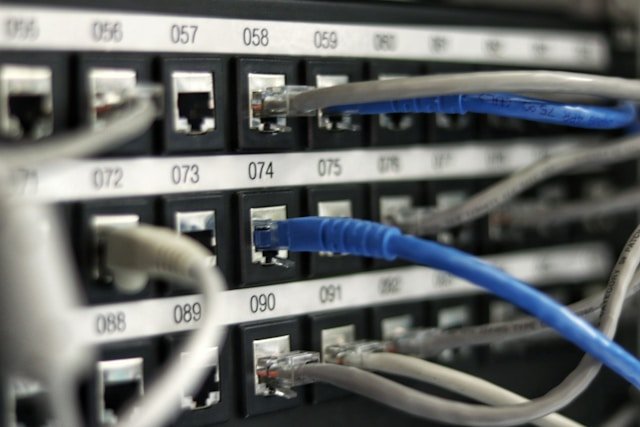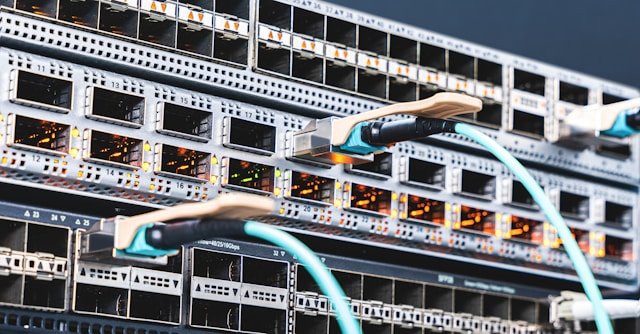Data Center
Optimal environment for colocation, managed hosting and disaster recovery.
Maximum performance data centers ensuring top speed, reliability, scalability
Fully secure – robust physical, cyber security, and compliance measures
World-Class & Secure Server Locations with edge computing

Reliability
We ensure that all systems and infrastructure are consistently available and operational by implementing redundant systems, maintenance, and robust disaster recovery.
Scalability
We grow and adapt to increasing demands without compromising performance by adding our modular design and adding storage, processing power, and network capacity as needed.
Security
Security is critical in protecting data and systems from unauthorized access, breaches, and other threats by employing multiple layers of defense to safeguard information.
The Best Planning, with Best Performance create the Best Results.
Alicance Data Centers – the best choice for data owners

Maximize your potential with Alicance’s Colocation
Colocation, often referred to as “colo,” involves housing privately-owned servers and networking equipment in a third-party data center. The data center provides the physical space, power, cooling, and security necessary to keep the equipment operational. Businesses choose colocation to benefit from the advanced infrastructure of a professional data center without the high costs of building and maintaining their own facility.
Physical Space: Businesses rent rack space within the data center, ensuring their equipment is stored in a controlled environment.
Power and Cooling: The data center provides robust and redundant power sources along with efficient cooling systems to ensure optimal performance and uptime.
Security: Colocation facilities offer stringent physical and network security measures, such as biometric access controls, surveillance cameras, and secure entry points, to protect the housed equipment.
Colocation allows businesses to retain control over their hardware and software while leveraging the reliability and scalability of a professional data center, making it a cost-effective solution for many enterprises.

Elevate your online presence with Alicance cloud hosting
Managed hosting is a service where a hosting provider leases dedicated servers and associated hardware to a single client and takes responsibility for the management of those systems. This includes server setup, maintenance, monitoring, security, and backups.
Server Setup and Maintenance: The hosting provider sets up the server according to the client’s specifications and handles all ongoing maintenance tasks to ensure optimal performance.
Monitoring and Security: Continuous monitoring of the server’s health and performance, as well as implementation of robust security measures to protect against threats.
Support and Troubleshooting: Dedicated technical support to resolve any issues promptly and keep the server running smoothly.
Managed hosting allows businesses to focus on their core operations without worrying about the complexities of server management, providing a hassle-free way to ensure high performance and security.

Future-proof your website with Alicance’s Disaster Recovery
Disaster recovery (DR) refers to the strategies and processes put in place to quickly restore access to IT resources and data after a disaster, such as natural disasters, cyberattacks, or system failures. The goal is to minimize downtime and data loss, ensuring business continuity.
Data Backup: Regularly scheduled backups of critical data to offsite or cloud storage to ensure data can be restored if lost.
Redundant Systems: Implementing duplicate systems and infrastructure that can take over in case of a primary system failure.
Recovery Plan: A comprehensive plan outlining the steps to be taken before, during, and after a disaster, including communication strategies, roles and responsibilities, and recovery procedures.
Disaster recovery planning is essential for minimizing the impact of unexpected disruptions, ensuring that businesses can quickly resume normal operations and maintain service levels even in the face of major incidents.
Reliable website hosting trusted by over businesses from every continent
Alicance hosting: Simplify Your Online Presence
i’m impressed with hosting!
Our experience with Alicance has been outstanding. Their colocation services have provided us with the security and reliability we needed. The state-of-the-art facilities ensure our equipment is safe, and their robust infrastructure guarantees high uptime. The team’s professionalism and 24/7 support have been crucial in resolving any issues promptly.

Lewis Nathan
Manager
great service!
We’ve been using [Data Center Company]’s managed hosting services for over a year, and the impact on our business has been transformative. Their team handles all the technical aspects, from server maintenance to security updates, allowing us to focus on our core activities.

Shaun Tim
Blogger
fast & reliable hosting!
Switching to Alicance for our disaster recovery needs was one of the best decisions we’ve made. Their comprehensive disaster recovery plan ensures our data is backed up and easily recoverable in case of an emergency.

Julia Sammy
Business

frequently asked questions
When you evaluate data centers for your needs, you often have critical questions to ensure they meet your requirements. Here are six common questions we have been asked and their answers.
Colocation services offer numerous benefits, including enhanced security, reliability, and scalability. By colocating your servers in a third-party data center, you gain access to state-of-the-art facilities with robust physical security measures, such as 24/7 surveillance and biometric access controls. Additionally, data centers provide redundant power supplies, cooling systems, and network connections, ensuring high availability and minimizing downtime. Scalability is another significant advantage, as you can easily expand your infrastructure without investing in new physical space or equipment. This approach also helps in reducing operational costs and focusing on core business activities.
Colocation facilities prioritize security and compliance by implementing comprehensive measures. Physical security includes 24/7 monitoring with CCTV cameras, biometric access controls, secure perimeters, and on-site security personnel. To protect data, facilities use firewalls, intrusion detection systems, and data encryption both in transit and at rest. Regular security audits and adherence to industry standards and regulations, such as ISO 27001, PCI DSS, and GDPR, further ensure compliance. Additionally, data centers often have disaster recovery plans and redundant systems in place to safeguard against data loss and ensure business continuity in case of unexpected events.
Managed hosting improves operational efficiency by outsourcing the management of your server infrastructure to a team of experts. This includes server setup, configuration, maintenance, monitoring, and security management. By doing so, your internal IT team can focus on strategic initiatives rather than routine maintenance tasks. Managed hosting providers offer 24/7 support, ensuring that any issues are promptly addressed, which minimizes downtime and maintains optimal performance. Additionally, providers use advanced tools and technologies to optimize resource utilization and enhance the overall efficiency of your IT operations, resulting in cost savings and improved service delivery.
A managed hosting provider offers comprehensive support and resources to ensure your infrastructure runs smoothly. This includes 24/7 technical support from experienced IT professionals who can handle any issues or inquiries. Managed hosting services typically include proactive monitoring, regular updates, security patches, and performance optimizations. Providers also offer backup and disaster recovery solutions to protect your data. Additionally, you can expect scalability options to accommodate your growing business needs, along with detailed service level agreements (SLAs) that guarantee uptime and performance standards, providing peace of mind and allowing you to focus on your core business activities.
Our disaster recovery service safeguards your business by ensuring data availability and minimizing downtime during unexpected events. We implement comprehensive disaster recovery plans tailored to your specific needs, which include regular data backups, offsite storage, and failover systems. These measures ensure that your data is protected and can be quickly restored in case of a disaster. Additionally, we conduct regular testing and updates of our disaster recovery procedures to ensure their effectiveness. By maintaining redundant systems and having a robust recovery plan in place, we can swiftly restore your operations, minimizing the impact of any disruptions.
Creating and maintaining an effective disaster recovery plan involves several critical steps. First, we conduct a thorough risk assessment to identify potential threats and vulnerabilities. Next, we define recovery objectives, including Recovery Time Objectives (RTO) and Recovery Point Objectives (RPO), to determine acceptable downtime and data loss. We then develop detailed recovery procedures for different disaster scenarios, covering data backups, failover systems, and communication protocols. Regular testing and simulations are essential to ensure the plan’s effectiveness and to identify areas for improvement. Finally, continuous monitoring and updates are required to keep the plan current with evolving threats and business needs, ensuring robust protection.
A simple email or chat is all it takes to get in touch.
Support Email
talk to our agent


